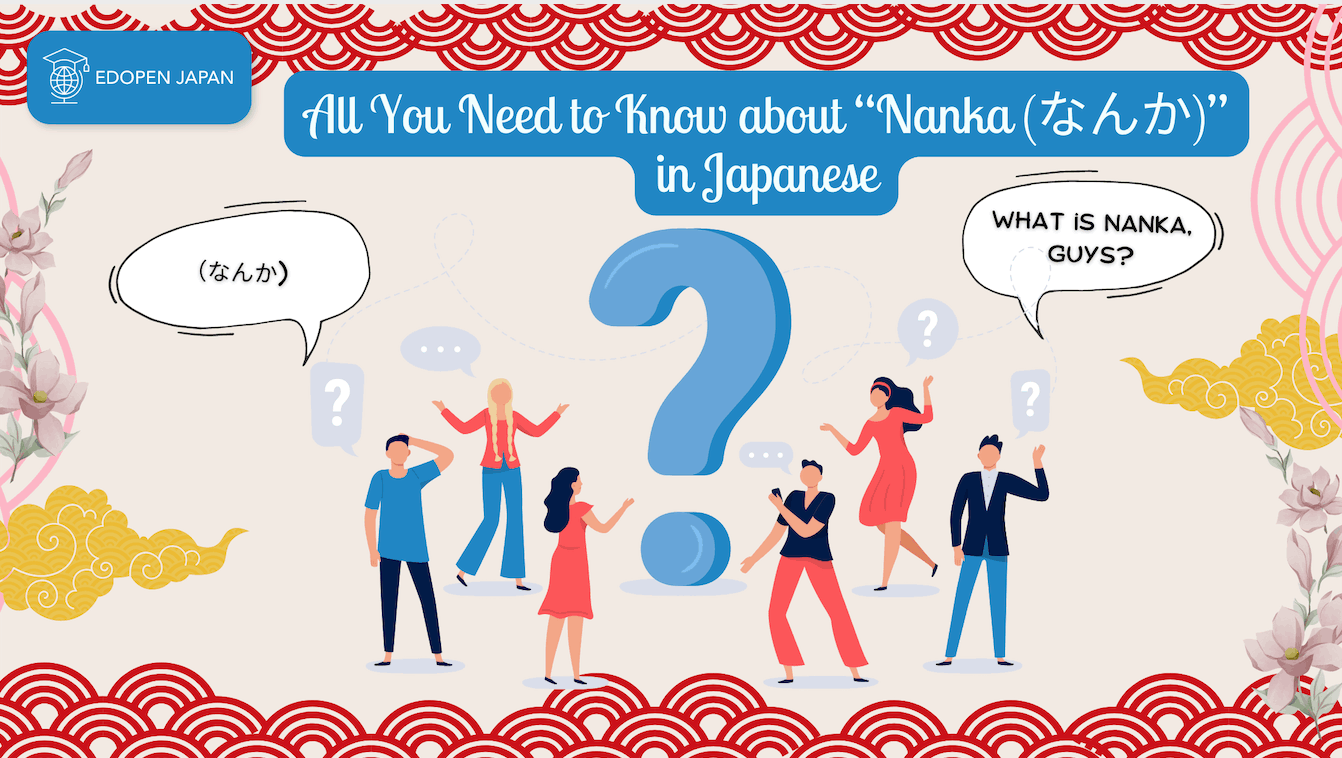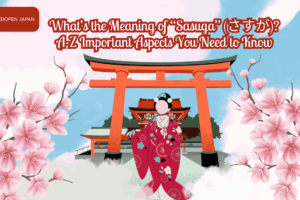Have you ever heard the word “なんか (Nanka)” in Japanese?
If you watch Japanese TV, film or drama, you may notice how often the Japanese use “Nanka” in everyday conversation. “Nanka iikoto atta?” which means “Do you have any good news?” or “Nanka hen” which means “something wrong” and so on.
Yes, if you go to Japan, you will hear this “Nanka” phrase every day. “Nanka” is one word, but it has many different meanings and uses. “Nanka” is the most useful casual phrase for speaking Japanese. That’s why people always use it unconsciously.
If you’re also learning Japanese and other phrases often used in everyday Japanese, check out our comprehensive discussion of ‘kudasai’ in Japanese and other famous phrases below!
Read also:
Japanese Honorifics: San, Chan, Kun, and Other Valuable Things You Need to Know
How are You in Japanese: All You Need to Know
How to Express I love you in Japanese?
Contents
What does “なんか (Nanka)” actually mean?
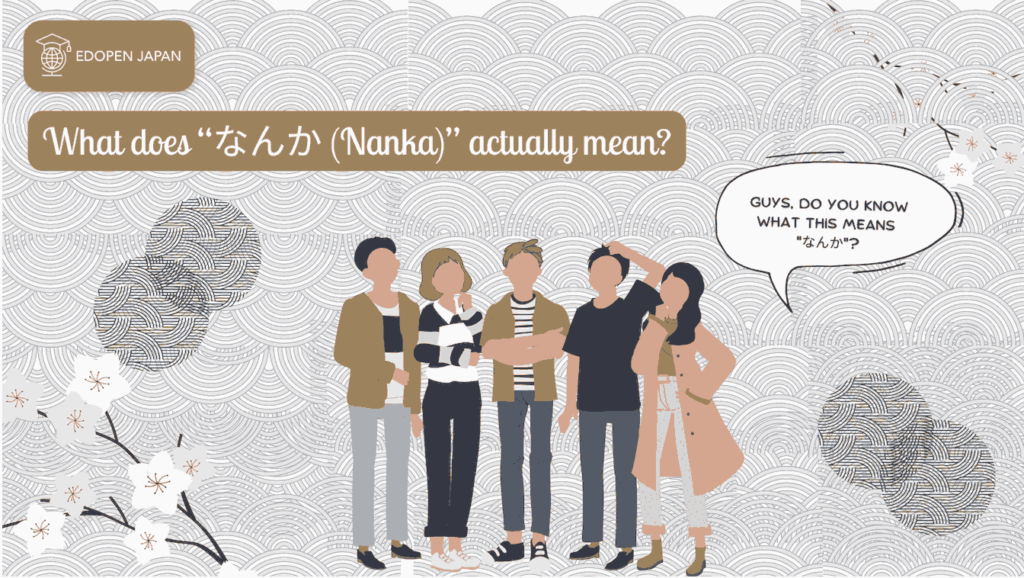
So what exactly is なんか (nanka)? Well, the first meaning is “something like…”. It is the same as the English “like”. You might hear some English speakers say things like, “Like totally, I would never want to do that, it’s just like wrong”. I’m sure you’ve heard this kind of language in your life, whether in real life or in the movies.
In Japanese, “なんか (nanka)” means the same thing. “なんか (nanka)” can be used almost anywhere in a sentence when you want to express the meaning of “something like”, just like in English. However, “Nanka” is only used in spoken language, so please bear this in mind.
How to use “Nanka” in a Sentence?
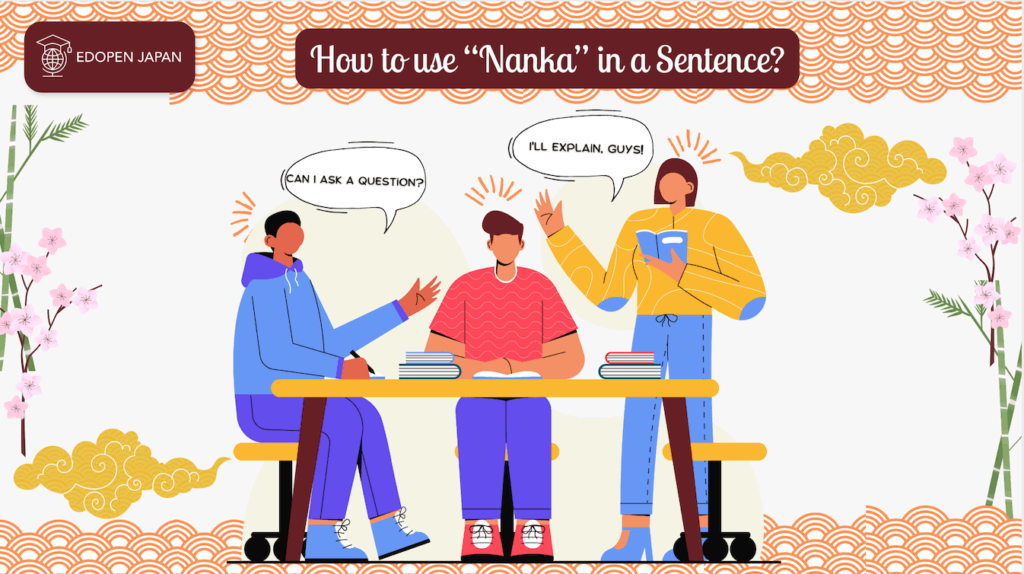
If there’s an equivalent to like, the word “like” in Japanese must be like “なんか (nanka)”. “なんか (nanka)” is a contraction of “なにか or 何か (nanika)”,, which means “something”. However, “Nanka” can be used to mean something very similar to the English “like”.
[Example]
Game Nanka kyoumi nai-yo.
ゲームなんか興味ないよ –
I’m not interested in something game.
You will notice the complete absence of particles. You’ll see this a lot in casual speech, so “なんか (nanka)” is always used in casual conversation. Another thing to note here is that “Nanka” in this example essentially means “things like”. This usage is unique to “Nanka”, and you won’t see “Nanika” (何か) used in the same way. used in the same way.
In fact, just like the word “like” in English, you can stick “何か or なんか (nanka)” anywhere and still make sense! Be careful, though, because it can become a habit and you may start to sound like you do when you use like, like, like everywhere. It is also like a “filler”, an extra phrase when you speak. This filler is used to fill in the gaps at the beginning of a conversation, when the speaker does not know what to say, when it is difficult to say, when hesitating. To learn more, please look at the examples below!
The frequency of “something” in everyday conversation is considerable. I think that the flow of words “Nanka saa”, “Nanka ~ dayone” and “Nanaka ~ da” is a kind of escape from responsibility. It seems that the formula “Nanka = I don’t understand well” is true.
When can we use ” なんか (nanka)” in everyday life?
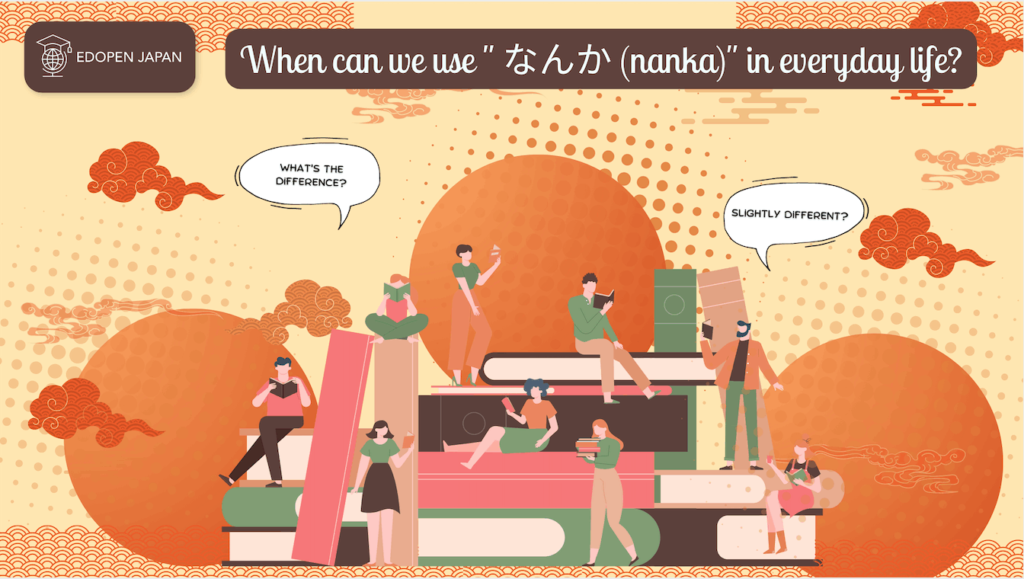
Including the above, there are several meanings of “なんか (nanka)” in a sentence. In Japan, people use “Nanka” in the following situations:
(1) When you are not confident, when you say something unclear, or when you are thinking
| Japanese Sentences | How to Read | Meaning in English |
| なんか大切なことを伝えたいのに、言葉がみつからない。 | Nanka taisetsunakoto wo tsutaetainoni Kotoba ga mitsukaranai. | I want to tell you something important, but I can’t find words. |
| 結婚する前になんか決め手がほしかった。 | I wanted a decisive factor before getting married. | Kekkon suru maeni Nanka kimete ga hoshikatta. |
(2) When you say something you don’t understand
| Japanese Sentences | How to Read | Meaning in English |
| なんか買いますか? | Nanka [Nanika] Kaimasuka? | Will you buy something? |
| なんか手伝いますか? | Nanka [Nanika] Testudaimasuka? | May I help you? |
(3) Expresses the speaker’s feelings of contempt, disdain and humility, negative feeling
Pattern: Subject + なんか・なにか 「Nanka or Nanika」
| Japanese Sentences | How to Read | Meaning in English |
| [Contempt] ひらがななんか簡単です。 | Hiragana Nanka Kantandesu. | Hiragana is too easy. |
| [Negative] 忙しすぎて休みなんかとれない。 | Isogashi-sugite Yasumi Nanka torenai. | I’m too busy to take a day off. |
| [Humility] お礼なんかいらないです。 | Orei Nanka iranai desu. | I don’t need that gratitude. |
| [Humility] わたしなんかまだまだです。 | Watashi Nanka madamada desu. There is a feeling of “It is still a long way” in “Something”. | I still have a long way to go. |
| [Negative] こんなことで結婚なんかしない。 | Konnakoto de Kekkon Nanka shinai! | I won’t get married because of this. |
| [Negative] あなたなんかきらい! | Anata Nanka Kirai! It is sometimes rude to use it for people, therefore, it is highly recommended to not easily use it. | I hate you! |
(4) Earning time [It is not formal, so it is better not use so often]
| Japanese Sentences | How to Read | Meaning in English |
| なんか、なんか、、 | Nanka, Nanka | It’s like… something like… |
(5) Escape responsibility, Feelings of hesitation and you don’t want to say things clearly
| Japanese Sentences | How to Read | Meaning in English |
| なんかよくわからないんですが、 | Nanka yoku wakaranai ndesuga.. | I am not sure but.. |
| なんか人から聞いたんですが、 | Nanka hito kara kiitanndesu ga.. | I just heard from others but.. |
(6) Same meaning as “Such as” or “etc”
Pattern: Noun phrase + Nanka → “etc.”
| Japanese Sentences | How to Read | Meaning in English |
| ビールなんか持っていきます。 | Bi-ru Nanka motte ikimasu. | I will bring something like beer. |
| 広告は電車なんかにたくさんあります。 | Koukoku wa Densha Nanka ni takusan arimasu. | There are a lot of advertisements on trains etc. |
Difference between “Nanka” and “Nanika”
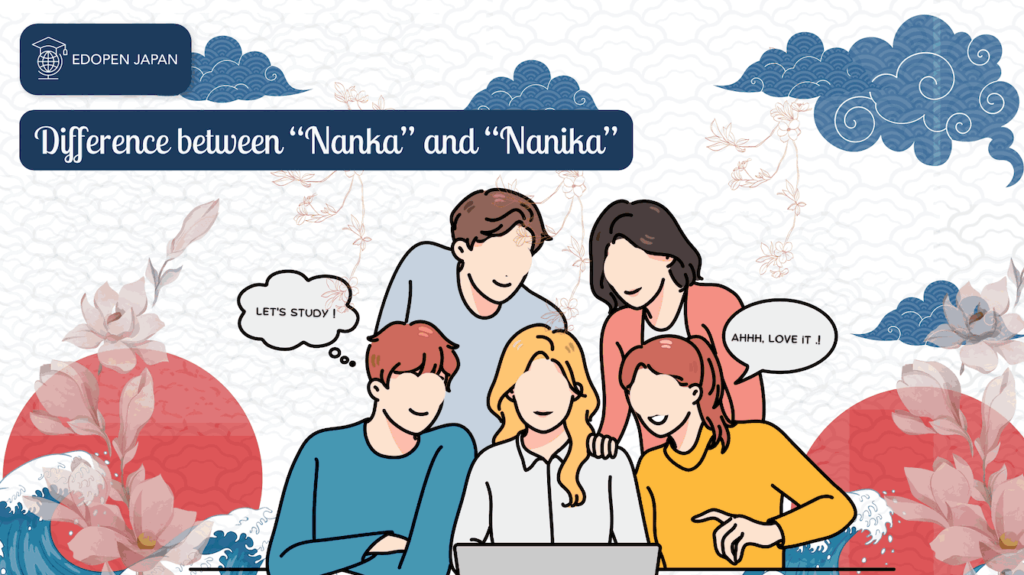
In conversation, “何か (nanika)” is also used in the same way as “何か or なにか (nanka)”. What is the difference between Nanka (なんか) and Nanika (なにか)? Originally, it was shortened in Japanese from “Nanika” なにか, which means something, to “Nanka”. Now it is almost the same. As you can see here, it is used in exactly the same way as “Nanika” (なにか), but there is one small difference. Can you tell what it is?
“Nanika” is more polite and formal and “Nanka” is more casual. Also, there is no particle in the “Nanka” sentence. When you use “Nanka”, you do not need to use a particle after it, which makes it quite easy to use. “Nanka” is the casual form of Nanika, so if a shopkeeper comes up to you and says:
It has the same meaning, but “何か or なにか (nanika)” is more formal and respectful of others, so shop assistants always use “Nanika” in this sentence. However, “Nanika” is too casual, so they will not use “Nanika” in this sentence. There is also another example, and the first two sentences use the “something” meaning, see how no particles are needed after “Nanka” as in the following sentences.
In this example, “nanka” is used to mean “like” or “say” – imagine how useful this could be to get someone’s attention or to fill in those awkward pauses:
The key points are below.
- “何か (nanika)” is more polite and is used more when writing. “何か (nanika)” must have particles, but “Nanka” does not, due to casual conversation.
- “なんか (nanka)” is more ambiguous and more uncertain than “Nanika”, so it is easier to say. 何か(nanika) is also often used by young people. “何か or なんか (nanka)” is very useful when you feel hesitant to say something that is difficult to say.
- “何か or なにか (nanka)” allows the listener to understand the psychological state of the speaker, so that communication can run smoothly.
Summary
To summarize this article, let’s review the following points:
- The Japanese use “Nanka” so often and it has many meanings depending on the situation.
“何か or なんか (nanka)” is a useful word to say uncertain things and to communicate smoothly with others. - “何か or なんか (nanka)” and “何か or なにか (nanika)” have the same meaning, but “何か or なにか(nanika)” is formal and “何か or なんか (nanka)” is more casual, and “何か or なんか (nanka)” does not need particles.
- It is better to learn “Nanka” phrases for casual conversation, but not to use them so often when you go to Japan in the future. Be aware that using “何か or なんか (nanka)” too much in conversation can give others a bad impression.

